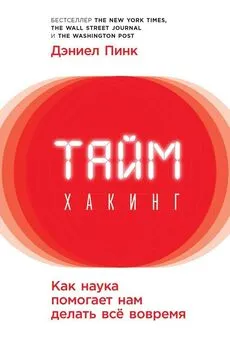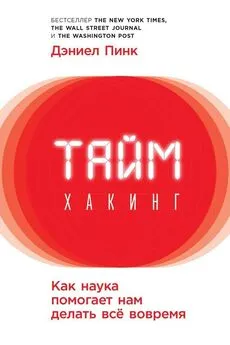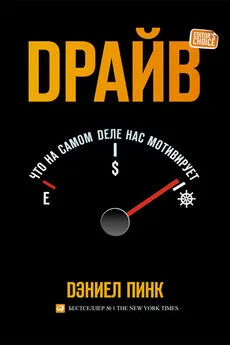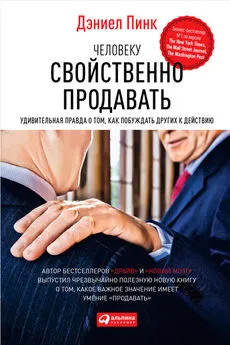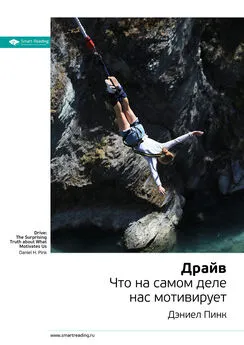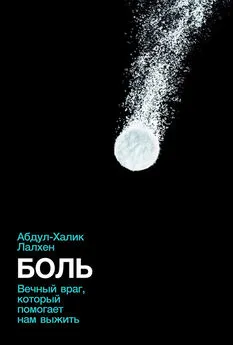Дэниель Пинк - Таймхакинг. Как наука помогает нам делать всё вовремя
- Название:Таймхакинг. Как наука помогает нам делать всё вовремя
- Автор:
- Жанр:
- Издательство:Литагент Альпина
- Год:2018
- Город:Москва
- ISBN:978-5-9614-1515-5
- Рейтинг:
- Избранное:Добавить в избранное
-
Отзывы:
-
Ваша оценка:
Дэниель Пинк - Таймхакинг. Как наука помогает нам делать всё вовремя краткое содержание
Таймхакинг. Как наука помогает нам делать всё вовремя - читать онлайн бесплатно ознакомительный отрывок
Интервал:
Закладка:
120
Renwick McLean, “For Many in Spain, Siesta Ends,” New York Times, January 1, 2006; Jim Yardley, “Spain, Land of 10 P. M. Dinners, Asks If It’s Time to Reset Clock,” New York Times, February 17, 2014; Margarita Mayo, “Don’t Call It the ‘End of the Siesta’: What Spain’s New Work Hours Really Mean, Harvard Business Review, April 13, 2016.
121
Ahmed S. BaHammam, “Sleep from an Islamic Perspective,” Annals of Thoracic Medicine 6, no. 4 (2011): 187–192.
122
Dan Bilefsky and Christina Anderson, “A Paid Hour a Week for Sex? Swedish Town Considers It,” New York Times, February 23, 2017.
123
Mayo Clinic staff, “Napping: Do’s and Don’ts for Healthy Adults”. (Электронная версия: https://www.mayoclinic.org/healthy-lifestyle/adult-health/in-depth/napping/art-20048319.)
124
Hannes Zacher, Holly A. Brailsford, and Stacey L. Parker, “Micro-Breaks Matter: A Diary Study on the Effects of Energy Management Strategies on Occupational Well-Being,” Journal of Vocational Behavior 85, no. 3 (2014): 287–297.
125
Daniel Z. Levin, Jorge Walter, and J. Keith Murnighan, “The Power of Reconnection: How Dormant Ties Can Surprise You,” MIT Sloan Management Review 52, no. 3 (2011): 45–50.
126
Christopher Peterson et al., “Strengths of Character, Orientations to Happiness, and Life Satisfaction,” Journal of Positive Psychology 2, no. 3 (2007): 149–156.
127
См.: Anna Brones and Johanna Kindvall, Fika: The Art of the Swedish Coffee Break (Berkeley, CA: Ten Speed Press, 2015); Anne Quito, “This Four-Letter Word Is the Swedish Key to Happiness at Work,” Quartz , March 14, 2016.
128
Charlotte Fritz, Chak Fu Lam, and Gretchen M. Spreitzer, “It’s the Little Things That Matter: An Examination of Knowledge Workers’ Energy Management,” Academy of Management Perspectives 25, no. 3 (2011): 28–39.
129
Lesley Alderman, “Breathe. Exhale. Repeat: The Benefits of Controlled Breathing,” New York Times, November 9, 2016.
130
Kristen M. Finkbeiner, Paul N. Russell, and William S. Helton, “Rest Improves Performance, Nature Improves Happiness: Assessment of Break Periods on the Abbreviated Vigilance Task,” Consciousness and Cognition 42 (2016): 277–285.
131
Angela Duckworth, Grit: The Power of Passion and Perseverance ( New York: Scribner, 2016), 118.
132
Stephanie Pappas, “As Schools Cut Recess, Kids’ Learning Will Suffer, Experts Say,” Live Science (2011). (Электронная версия: https://www.livescience.com/15555-schools-cut-recess-learning-suffers.html.)
133
Claude Brodesser-Akner, “Christie: ‘Stupid’ Mandatory Recess Bill Deserved My Veto,” NJ.com, January 20, 2016. (Электронная версия: http://www.nj.com/politics/index.ssf/2016/01/christie_stupid_law_assuring_kids_recess_deserved.html.)
134
Olga S. Jarrett et al., “Impact of Recess on Classroom Behavior: Group Effects and Individual Differences,” Journal of Educational Research 92, no. 2 (1998): 121–126.
135
Catherine N. Rasberry et al., “The Association Between School-Based Physical Activity, Including Physical Education, and Academic Performance: A Systematic Review of the Literature,” Preventive Medicine 52 (2011): S10–20.
136
Romina M. Barros, Ellen J. Silver, and Ruth E. K. Stein, “School Recess and Group Classroom Behavior,” Pediatrics 123, no. 2 (2009): 431–436; Anthony D. Pellegrini and Catherine M. Bohn, “The Role of Recess in Children’s Cognitive Performance and School Adjustment,” Educational Researcher 34, no. 1 (2005): 13–19.
137
Sophia Alvarez Boyd, “Not All Fun and Games: New Guidelines Urge Schools to Rethink Recess,” National Public Radio, February 1, 2017.
138
Timothy D. Walker, “How Kids Learn Better by Taking Frequent Breaks Throughout the Day,” KQED News Mind Shift , April 18, 2017; Christopher Connelly, “More Playtime! How Kids Succeed with Recess Four Times a Day at School,” KQED News , January 4, 2016.
139
Anne G. Wheaton, Gabrielle A. Ferro, and Janet B. Croft, “School Start Times for Middle School and High School Students – United States, 2011–2012 School Year,” Morbidity and Mortality Weekly Report 64, no. 3 (August 7, 2015): 809–813.
140
Karen Weintraub, “Young and Sleep Deprived,” Monitor on Psychology 47, no. 2 (2016): 46; цит. по: Katherine M. Keyes et al., “The Great Sleep Recession: Changes in Sleep Duration Among US Adolescents, 1991–2012,” Pediatrics 135, no. 3 (2015): 460–468.
141
Finley Edwards, “Early to Rise? The Effect of Daily Start Times on Academic Performance,” Economics of Education Review 31, no. 6 (2012): 970–983.
142
Reut Gruber et al., “Sleep Efficiency (But Not Sleep Duration) of Healthy School-Age Children Is Associated with Grades in Math and Languages,” Sleep Medicine 15, no. 12 (2014): 1517–1525.
143
Adolescent Sleep Working Group, “School Start Times for Adolescents,” Pediatrics 134, no. 3 (2014): 642–649.
144
Kyla Wahlstrom et al., “Examining the Impact of Later High School Start Times on the Health and Academic Performance of High School Students: A Multi-Site Study,” Center for Applied Research and Educational Improvement (2014). См. также: Robert Daniel Vorona et al., “Dissimilar Teen Crash Rates in Two Neighboring Southeastern Virginia Cities with Different High School Start Times,” Journal of Clinical Sleep Medicine 7, no. 2 (2011): 145–151.
145
Pamela Malaspina McKeever and Linda Clark, “Delayed High School Start Times Later than 8:30 AM and Impact on Graduation Rates and Attendance Rates,” Sleep Health 3, no. 2 (2017): 119–125; Carolyn Crist, “Later School Start Times Catch on Nationwide,” District Administrator , March 28, 2017.
146
Anne G. Wheaton, Daniel P. Chapman, and Janet B. Croft, “School Start Times, Sleep, Behavioral, Health, and Academic Outcomes: A Review of the Literature,” Journal of School Health 86, no. 5 (2016): 363–381.
147
Judith A. Owens, Katherine Belon, and Patricia Moss, “Impact of Delaying School Start Time on Adolescent Sleep, Mood, and Behavior,” Archives of Pediatrics & Adolescent Medicine 164, no. 7 (2010): 608–614; Nadine Perkinson-Gloor, Sakari Lemola, and Alexander Grob, “Sleep Duration, Positive Attitude Toward Life, and Academic Achievement: The Role of Daytime Tiredness, Behavioral Persistence, and School Start Times,” Journal of Adolescence 36, no. 2 (2013): 311–318; Timothy I. Morgenthaler et al., “High School Start Times and the Impact on High School Students: What We Know, and What We Hope to Learn,” Journal of Clinical Sleep Medicine 12, no. 12 (2016): 168–189; Julie Boergers, Christopher J. Gable, and Judith A. Owens, “Later School Start Time Is Associated with Improved Sleep and Daytime Functioning in Adolescents,” Journal of Developmental & Behavioral Pediatrics 35, no. 1 (2014): 11–17; Kyla Wahlstrom, “Changing Times: Findings from the First Longitudinal Study of Later High School Start Times,” NASSP Bulletin 86, no. 633 (2002): 3–21; Dubi Lufi, Orna Tzischinsky, and Stav Hadar, “Delaying School Starting Time by One Hour: Some Effects on Attention Levels in Adolescents,” Journal of Clinical Sleep Medicine 7, no. 2 (2011): 137–143.
148
Scott E. Carrell, Teny Maghakian, and James E. West, “A’s from Zzzz’s? The Causal Effect of School Start Time on the Academic Achievement of Adolescents,” American Economic Journal: Economic Policy 3, no. 3 (2011): 62–81.
149
M.D.R. Evans, Paul Kelley, and Johnathan Kelley, “Identifying the Best Times for Cognitive Functioning Using New Methods: Matching University Times to Undergraduate Chronotypes,” Frontiers in Human Neuroscience 11 (2017): 188.
150
Finley Edwards, “Early to Rise? The Effect of Daily Start Times on Academic Performance,” Economics of Education Review 31, no. 6 (2012): 970–983.
151
Brian A. Jacob and Jonah E. Rockoff, “Organizing Schools to Improve Student Achievement: Start Times, Grade Configurations, and Teacher Assignments,” Education Digest 77, no. 8 (2012): 28–34.
152
Anne G. Wheaton, Gabrielle A. Ferro, and Janet B. Croft, “School Start Times for Middle School and High School Students – United States, 2011–2012 School Year,” Morbidity and Mortality Weekly Report 64, no. 30 (August 7, 2015): 809–813; Karen Weintraub, “Young and Sleep Deprived,” Monitor on Psychology 47, no. 2 (2016): 46.
153
Термин «временной ориентир» впервые появился в работе: Michael S. Shum, “The Role of Temporal Landmarks in Autobiographical Memory Processes,” Psychological Bulletin 124, no. 3 (1998): 423. Автор, получивший в Северо-Западном университете докторскую степень в области психологии, затем оставил бихевиористику, получил вторую докторскую степень по филологии и сейчас пишет романы.
154
Hengchen Dai, Katherine L. Milkman, and Jason Riis, “The Fresh Start Effect: Temporal Landmarks Motivate Aspirational Behavior,” Management Science 60, no. 10 (2014): 2563–2582.
155
Hengchen Dai, Katherine L. Milkman, and Jason Riis, “The Fresh Start Effect: Temporal Landmarks Motivate Aspirational Behavior,” Management Science 60, no. 10 (2014): 2563–2582.
156
Johanna Peetz and Anne E. Wilson, “Marking Time: Selective Use of Temporal Landmarks as Barriers Between Current and Future Selves,” Personality and Social Psychology Bulletin 40, no. 1 (2014): 44–56.
157
Hengchen Dai, Katherine L. Milkman, and Jason Riis, “The Fresh Start Effect: Temporal Landmarks Motivate Aspirational Behavior,” Management Science 60, no. 10 (2014): 2563–2582.
158
Jason Riis, “Opportunities and Barriers for Smaller Portions in Food Service: Lessons from Marketing and Behavioral Economics,” International Journal of Obesity 38 (2014): S19–24.
159
Hengchen Dai, Katherine L. Milkman, and Jason Riis, “The Fresh Start Effect: Temporal Landmarks Motivate Aspirational Behavior,” Management Science 60, no. 10 (2014): 2563–2582.
Читать дальшеИнтервал:
Закладка:
